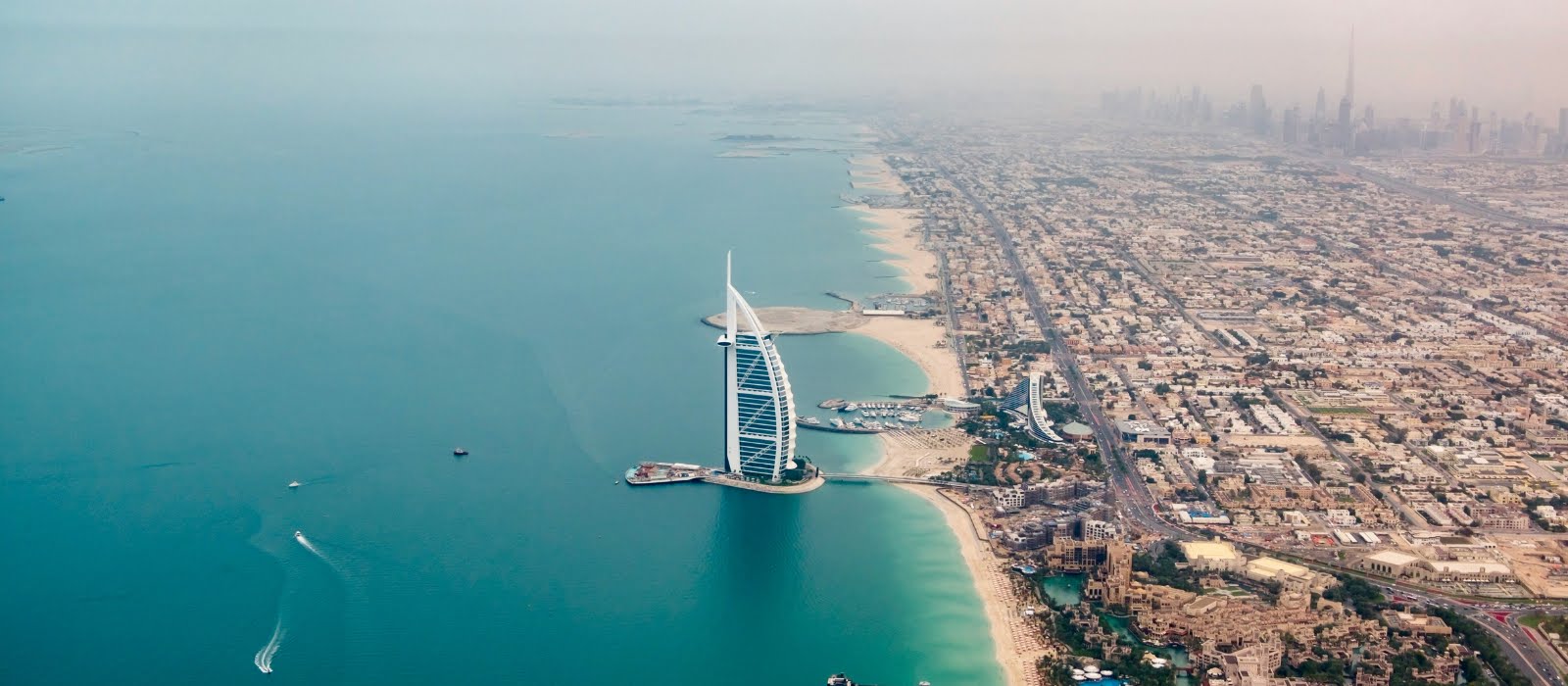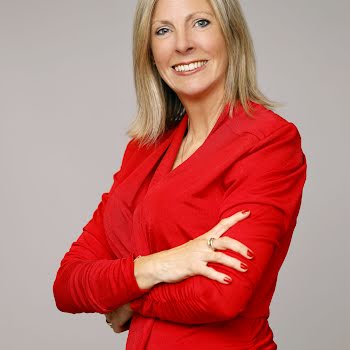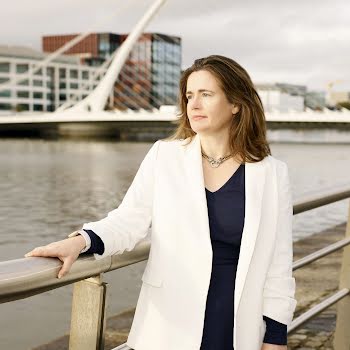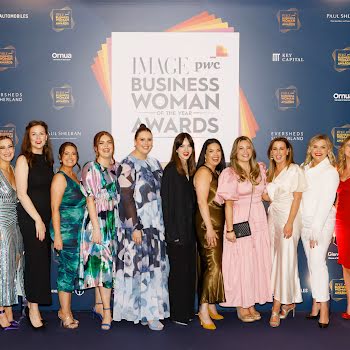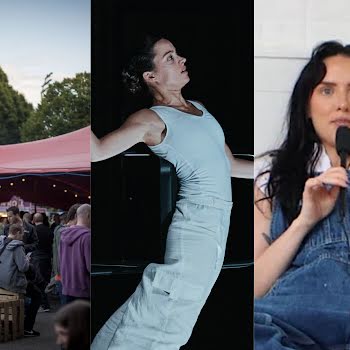Influencer-washing in Dubai: How human rights violations hide behind glamorous influencers
The recent case of an Irish domestic violence victim who was criminalised by Dubai authorities highlights the chasm between the glamourous image of Dubai promoted by influencers and the dark realities of a city that is built on exploitation and perpetuates harm against women, gay people, migrant workers and victims of sexual and gendered violence.
Earlier this month, 28-year-old Roscommon native Tori Towey came home from Dubai after surviving a nightmare.
Towey, who was a crew member with Emirates Airlines, had been living in Dubai with her South African husband. Towey’s husband became emotionally and physically abusive, controlling her movements and isolating her from her friends and family, preventing her family from getting in touch with her and punishing her if she spoke to them. During a recent physical attack by her husband where he started slamming doors on her arms and legs, trying to break them, Towey ran to a bathroom, locked herself in and tried to take her own life.
When the domestic violence victim woke up, an ambulance crew and the police were both present. In her vulnerable state, Towey was taken to Al Barsha police station and questioned at length. Instead of being offered support or help, she was charged with alcohol consumption and attempted suicide, which is criminalised in the Arab Emirates. She was then sent home with the man who had attacked her. Towey’s passport was confiscated and was put under a travel ban.
After Sinn Féin leader Mary Lou McDonald brought the case to the Dáil and Taoiseach Simon Harris offered support and assistance to Towey and her family, the case made worldwide headlines. Towey was allowed to travel home.
Mary Lou McDonald highlighted how this case raises “fundamental questions around the treatment of women in Dubai.” Speaking about the vicious assault Towey experienced and the compounding trauma of the Dubai authorities’ response to her, McDonald said “I have found this whole episode to be grotesque and medieval in what it says around how women are treated as objects, as possessions,” she said. “I find it really distressing that a woman who suffered such vicious domestic violence wasn’t protected, wasn’t supported but instead was actually charged with offences herself.”
Detained in Dubai provides legal help to people who find themselves at the mercy of draconian, misogynistic and homophobic laws in Dubai. Founded by Radha Stirling in 2008, Detained in Dubai has overseen a huge range of cases, helping over 15,000 people. Speaking to Newstalk, Radha Stirling said that the danger of Dubai is that it presents itself as a place of prosperity, wealth, opportunity and progress, trying to attract young people over to work. But what it conceals are its laws that often put women and victims of abuse or sexual assault in danger and even on trial.
“They had made an effort for public-relations purposes, they were starting to take women’s rights a bit more seriously, victim rights, but it seems like nothing has changed,” said Stirling.
Indeed, there have been a string of high-profile cases where women and victims of physical or sexual violence have found themselves further victimised by Dubai’s legal system and treated as criminals themselves.
In 2007, Alexandre Robert, a 15-year-old boy living in Dubai was offered a lift home by an acquaintance but was taken by three men into the desert on the outskirts of the city where he was gang-raped. The men threatened to rape him again and kill his family if he reported them.
When Alexandre’s parents took him to the police, the police were hostile to him, dissuading him from making a complaint. A doctor who gave Alexandre a medical examination tried to push Alexandre to say that he wasn’t raped, implying that Alexandre was gay and had consented. These accusations were based on Dubai’s view of homosexuality, which is a crime. Rape of men is not recognised, and the term “forced homosexuality” is often used, which automatically puts suspicion on the victim. Alexandre’s parents were also lied to about the results of HIV and AIDs tests of Alexandre’s rapists – one of his attacks had AIDs and was known to Emirati authorities for sexual crimes.
Only after Alexandre’s mother – a journalist – used her networks and the help of the French authorities to highlight the case were Alexandre’s attackers brought to trial. During the trial, the teenage victim was repeatedly accused of being gay and consenting to sex.
In 2013, Norwegian woman Marte Deborah Dalely was on a business trip in Dubai when she reported to the police that she had been raped. After a night out with colleagues where there was drinking and a visit to a Dubai nightclub, a colleague offered to let her sleep in his hotel room, saying he would sleep on the couch. However, she said he then held her down and raped her, and she only escaped when room service knocked on the door. She immediately ran to the hotel lobby and asked people to help her and to call the police.
After reporting the rape, instead of receiving help and support, Dalely was charged with having extramarital sex, drinking alcohol, and perjury. The charges led to her company firing her, on the grounds of “unacceptable and improper behaviour during your last business trip in Dubai, which has resulted in your arrest by the Police Authorities in UAE” that was “in direct violation of the company policy.” The 24-year-old was then put on trial after being raped and received a 16-month prison sentence.
After international attention and outrage, Dalely was pardoned – not because Dubai was committed to addressing its laws around women, sex, alcohol or supporting victims of sexual assault, but because the international attention was bad for Dubai’s global reputation, and because the Norwegian authorities were putting pressure on Dubai to pardon Dalely.
This was proven in 2016, when a British woman in her 20s reported that she had been raped by two British men, only to have her passport confiscated and be charged with having extramarital sex. The two men had their passports confiscated but faced no charges.
At the time, Radha Stirling of Detained in Dubai said the UAE had a long history of penalising rape victims. “We have been involved with several cases in the past where this has happened, and we work with the lawyers and families and have campaigned to change attitudes in the police and judiciary. Recent cases… show that it is still not safe for victims to report these crimes to the police without the risk of suffering a double punishment”.
There have also been cases where British people visiting or working in Dubai have been arrested for behaviour that is viewed as absolutely normal in most countries, highlighting Dubai’s deeply regressive views of women’s rights, the female body, sexuality and affection. In 2010, a British woman was charged with public indecency after wearing a bikini in a Dubai mall – the same year, a British couple were arrested and jailed for a month for kissing in a restaurant. In 2017, Dubai’s homophobia was again on display when Scottish electrician Jamie Harron was arrested for public indecency after touching a man’s hip in a bar. Harron said he was simply trying to move through the bar without spilling his drink, but he was sentenced to three month’s imprisonment. He was freed when the case received international attention.
On social media, Dubai seems like a luxurious paradise, ready to host young people in their dream life of designer shopping and partying. But this is advertising that conceals the dark and dangerous reality, where workers are exploited, gay people are targeted, and victims of sexual and gendered violence are criminalised.
The common denominator in these cases is that they received international attention and criticism – thousands more cases go under the radar, where people living in Dubai are treated abominably by authorities, living under draconian laws, or are criminalised for being victims of abuse. There are even more gross violations of human rights happening every day in the UAE – but looking at images of Dubai on Instagram and on the social media pages of Western influencers, you would never guess.
Public perception is vital to the UAE’s survival. Tourism is a major contributor to the UAE’s GDP, with a projected €20.9 billion for 2026. But its tourism is relatively limited in its scope, with no historical or natural attractions. It is a destination based almost solely on consumerism, spending and luxury. For a place that only has products and a consumerist lifestyle to sell, Dubai has created a symbiotic relationship with online influencers. This makes sense – an influencer’s literal job is to promote their product-filled lifestyles. Dubai’s relationship with social media and influencers is firmly established, with the Dubai Corporation for Tourism and Commerce using their Instagram page Visit Dubai to promote travel there, and they regularly partner with famous influencers to boost their international image and profile.
Dubai offers great partnership deals and high wages to influencers and young content creators who visit or live in Dubai, promoting itself as a place of wealth, glamour, luxury, and designer shopping. Focusing on creating an international image of conspicuous consumption and aesthetic appeal, it’s deliberately targeting Western influencers – because those influencers then post about their trips or homes, promoting Dubai even more. Dubai styles itself as an influencer paradise, knowing that by attracting young people, it will essentially provide Dubai with free advertising via social media.
And this advertising will be positive – Dubai’s laws on speech, including journalism, ensure it. Last year, influencer Hamdan Al Rind, a UAE resident known as TikTok’s Car Expert, posted a satirical video about life in Dubai, where he dressed as an Emirati man who shouted at employees while assistants carried around large stacks of cash behind him. The video led to Al Rind being arrested and forced to take down the video. The Federal Prosecution for Combating Rumours and Cybercrimes claimed he was “abusing the internet” by posting “propaganda that stirs up the public opinion and harms the public interest.” The state-run organisation said the video “promotes a wrong and offensive mental image of Emirati citizens and ridicules them.”
This level of control is vital to Dubai’s desire to be promoted positively. But as Dubai uses young, attractive, glamorous and largely female influencers to promote its public image, it still remains a deeply dangerous place where human rights violations are rampant. This is known as ‘influencer-washing’, a way of using influencers and public displays of Westerners enjoying a wealthy and glamorous lifestyle to conceal the darker realities of the region.
Apart from the abuses listed above that have left women, tourists, and victims of sexual violence deeply vulnerable, Dubai and the UAE have a dark history of exploiting migrant workers, who make up 90% of Dubai’s workforce. A far cry from the glamorous lifestyle enjoyed by influencers on press trips, these migrant workers are often forced into situations where their finances, travel and legal rights are completely controlled. Employers have to give workers a permit to leave the country, and employers often deny these requests, forcing workers to stay in horrific conditions. One engineering company, Mercury MENA, didn’t pay its workers for over two years, and many workers have their passports seized by employers so they can’t leave.
Human trafficking is rampant and workers rights are essentially non-existent. In the construction industry, the lack of workers’ rights and protections has led to multiple deaths. The number of worker deaths is not readily available, but data from the Indian government shows that 185 Indian nationals died between 2012-2017, often due to cardiovascular events caused by overworking and exposure to extreme heat.
The emotional and mental health implications of these inhumane conditions are unsurprisingly devastating, and foreign nationals working in Dubai have a suicide rate of over seven times the rate of that among nationals. The majority of foreign nationals who die by suicide in Dubai are single male workers with little education, mostly working in blue-collar jobs. While influencers take photos in infinity pools on the rooftops of skyscrapers, the migrant workers who helped build them often jump off them. In 2011, the Indian consulate reported that two Indian workers a week were dying by suicide.
To look on social media, Dubai seems like a luxurious paradise of glamour, wealth and fun, ready to host young people in their dream life of designer shopping and partying. But this is advertising; a pretty image that conceals the dark and dangerous reality of life for foreign nationals living in Dubai. Workers are exploited, gay people are targeted, women are objectified, and victims of sexual and gendered violence are criminalised. Against this dark reality, it’s hard to defend the choice of young influencers to prioritise only their income and to promote a place that could very well endanger anyone who follows their example and travels there.
Tori Towey went to the Emirates looking for fun, adventure, love and a chance to make some money. Instead, she suffered abuse, isolation and violence by her partner – and then further victimisation by a place that does not care about human rights or dignity. That’s the Dubai that isn’t shown on social media. But it’s the reality that everyone needs to know. It’s the reality that needs to be shared, to keep everyone safe.
Photography by Unsplash.











